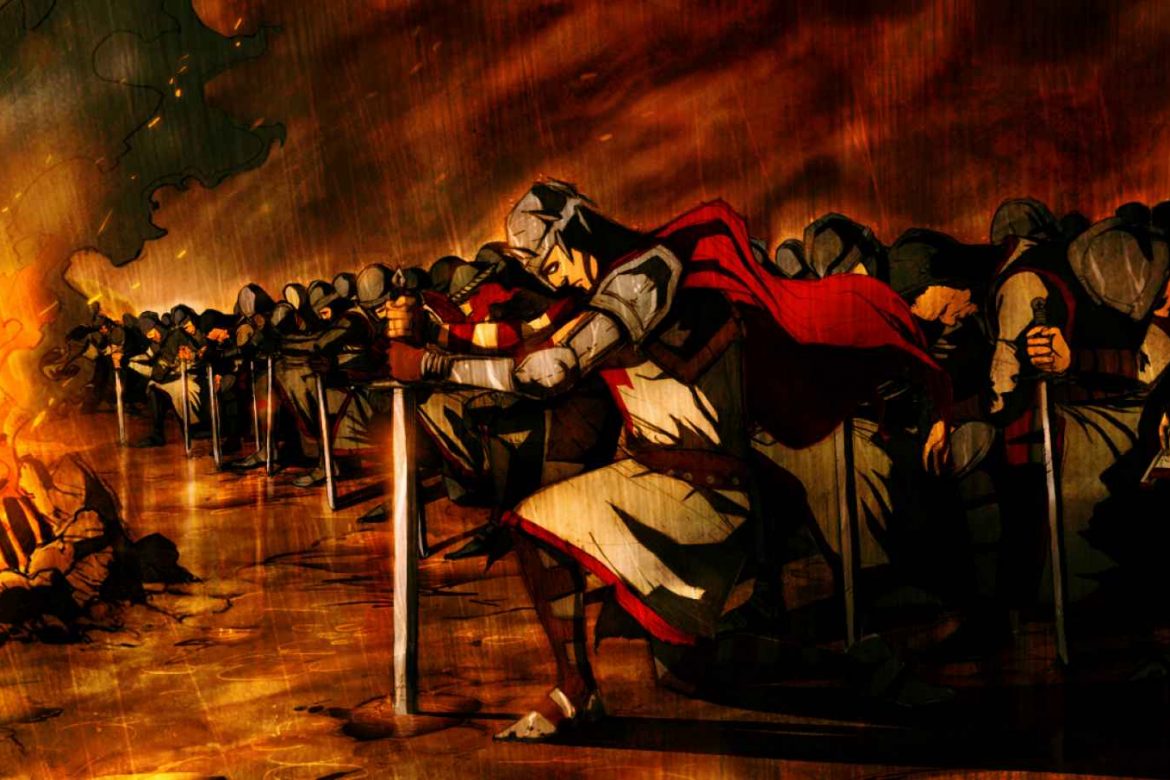You can’t demonize a demon…
WHEN AND WHY THE WEST BEGAN TO ‘DEMONIZE’ MUHAMMAD
Did Christendom really trigger the conflict?
To understand any phenomenon, its roots must first be understood. Unfortunately, not only do all discussions on the conflict between Islam and the West tend to be limited to the modern era, but when the past, the origins, are alluded to, the antithesis of reality is proffered: we hear that the West—itself an anachronism for Europe, or better yet, Christendom—began the conflict by intentionally demonizing otherwise peaceful and tolerant Muslims and their prophet in order to justify their “colonial” aspirations in the East, which supposedly began with the Crusades.
Bestselling author on Islam and Christianity Karen Armstrong summarizes the standard view:
Ever since the Crusades, people in the west have seen the prophet Muhammad as a sinister figure…. The scholar monks of Europe stigmatised Muhammad as a cruel warlord who established the false religion of Islam by the sword. They also, with ill-concealed envy, berated him as a lecher and sexual pervert at a time when the popes were attempting to impose celibacy on the reluctant clergy.
That nothing could be further from the truth is an understatement. From the very first Christian references to Muslims in the seventh century, to Pope Urban’s call to the First Crusade more than four centuries later, the “Saracens” and their prophet were consistently abhorred.
Thus, writing around 650, John of Nikiu, Egypt, said that “Muslims”—the Copt is apparently the first non-Muslim to note that word—were not just “enemies of God” but adherents of “the detestable doctrine of the beast, that is, Mohammed.”[1] The oldest parchment that alludes to a warlike prophet was written in 634—a mere two years after Muhammad’s death. It has a man asking a learned Jewish scribe what he knows about “the prophet who has appeared among the Saracens.” The elderly man, “with much groaning,” responded: “He is deceiving. For do prophets come with swords and chariot? Verily, these events of today are works of confusion…. you will discover nothing true from the said prophet except human bloodshed.”[2] Others confirmed that “there was no truth to be found in the so-called prophet, only the shedding of men’s blood. He says also that he has the keys of paradise, which is incredible.”[3]
[…]
Muhammad is first mentioned by name in a Syriac fragment, also written around 634; although only scattered phrases are intelligible, they all revolve around bloodshed: “many villages [in Homs] were ravaged by the killing [of the followers] of Muhammad and many people were slain and [taken] prisoner from Galilee to Beth…” “[S]ome ten thousand” people were slaughtered in “the vicinity of Damascus…”[4] Writing around 640, Thomas the Presbyter mentions Muhammad: “there was a battle [Adjnadyn?] between the Romans and the Arabs of Muhammad in Palestine twelve miles east of Gaza. The Romans fled… Some 4,000 poor villagers of Palestine were killed there … The Arabs ravaged the whole region”; they even “climbed the mountain of Mardin and killed many monks there in the monasteries of Qedar and Bnata.” A Coptic homily, also written around the 640s, is apparently the earliest account to associate the invaders with (an albeit hypocritical) piety. It counsels Christians to fast, but not “like the Saracens who are oppressors, who give themselves up to prostitution, massacre and lead into captivity the sons of men, saying, ‘we both fast and pray.’”[5]
Towards the end of the seventh and beginning of the eighth centuries, learned Christians began to scrutinize the theological claims of Islam. The image of Muslims went from bad to worse. The Koran—that “most pitiful and most inept little book of the Arab Muhammad”—was believed to be “full of blasphemies against the Most High, with all its ugly and vulgar filth,” particularly its claim that heaven amounted to a “sexual brothel,” to quote eighth century Nicetas Byzantinos, who had and closely studied a copy of it. Allah was denounced as an impostor deity, namely Satan: “I anathematize the God of Muhammad,” read one Byzantine canonical rite.[6]

